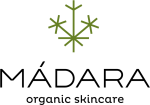
In 2010 MARTA started working proactively with young people aged 13—16 aiming to raise their awareness of gender equality, challenge the traditional gender stereotypes and thus reduce the risk for young people to experience violence and become victims of human trafficking
Compared to other age groups, young people are at increased risk of violence in both the role of victim and aggressor (Sethi et al, 2010; Bellis et al, 2011). Youth violence cannot be solely blamed on individuals: it is a product of biological, social, cultural and economic factors. Many of the root causes are in childhood and addressing these is a societal responsibility that falls on many sectors such as health, justice, education, welfare, labour and local government.[1]
How young people cope with the challenges they face during this particular period of their life (e.g. first intimate relationship experiences, conflict resolution, addiction risks, peer pressure, education choices etc.) depends on their social and emotional skills, family and social support, and quality access to education and cultural activities. Healthy relationships based on mutual respect and trust, not only between peers, but also between adults, are essential in the process of identity, self-esteem and personal autonomy. Research shows that adolescents with a healthy social support system (family, friends, educators, etc., trustees) have better physical and psycho-emotional health and a sense of well-being, as well as a higher motivation to engage and participate in social and cultural activities in society.[2]
In order for the MARTA Center to be able to realize its vision - a society without violence - more fully and sustainably, Youth Programs were established in 2010 and long-term work with young people (especially between the ages of 12 and 18) started.
Aim: to identify and challenge traditional harmful gender roles and stereotypes, to critically analyze their connection with violence in society, thus reducing the risk of young people experiencing violence or becoming victims of human trafficking. The activities of Youth Programs include 1) classes on healthy relationships for young people in schools all across Latvia 2) long-term cooperation with schools and youth centers in municipalities of Latvia, involving young people in the Youth Group methodology’s activities developed and piloted by MARTA Centre 3) national and international cooperation’s with non-governmental organizations, institutions and other stakeholders from Europe and further.
Since 2010, the activities of Youth Groups methodology and Youth Programs involve an average of 80-100 young people and 150 – 200 youth workers/educators/leaders a year.
What is Youth Group methodology?
The Youth Group methodology consists of a cycle of 17 workshops (90 – 180 min long), with a meeting once a week. During the cycle, the group members, accompanied by a specially trained group leader, theoretically and practically acquire various healthy life skills and competencies that will help them understand and manage themselves, build healthy and mutually supportive relationships with peers and face injustice safely, without violence.
During the workshops, various non-formal education methods are used (discussions; group work; self-reflection tasks; analysis of situations, attitudes, actions, etc.), looking at the following topics:Who and what are we? Understanding oneself and others. Belonging to the group and community.
Understanding and managing my behaviors and emotions.
What is gender equality and why is it important to talk about it?
Adolescent reproductive health and sexuality.
HIV / AIDS and STDs - what is it and how to protect myself and others.
Decision making, physical and emotional boundaries, consent.
Addictive substances and their effects on my body and well-being.
Caring for myself and others.
How to say "no" and stay "stylish"?
Relationships at school, family and other environments.
What is violence? What are its types? Why does it occur and how can it be recognized and prevented?
Bystander effect - how to stop violence?
Conflicts and ways to resolve them.
Culturally specific Youth Group methodology (2018-2020) has been created and piloted with the support of Oak Foundation Mádara Organic Skincare, Latvijas Republikas Kultūras ministrijai, Embassy of Canada to Latvia, U.S. Embassy in Latvia, The International Women"s Club of Riga and individual donations. The methodology"s impact study is conducted in collaboration with the Faculty of Anthropology, University of Latvia, Dr.physic. Egita Gritane and Ph.D. Astrida Seja Kaugars (Marquette University, Wisconsin, USA)
VIDEO: Story of MARTA Center. Violence prevention among and towards youth (2019)
VIDEO: Youth Group methodology. Description. (2012)
VIDEO: Youth Group methodology in Latvia. Impact. (2012)
Connect: Director of Youth Programs Madara Mazjane madara@marta.lv
[1] Youth violence (World Health Organization)
[2] WHO (2016) HEALTH BEHAVIOUR IN SCHOOL-AGED CHILDREN (HBSC) STUDY:INTERNATIONAL REPORT FROM THE 2013/2014 SURVEY “Growing up unequal: gender and socioeconomic differences in young people’s health and well-being”.png)










